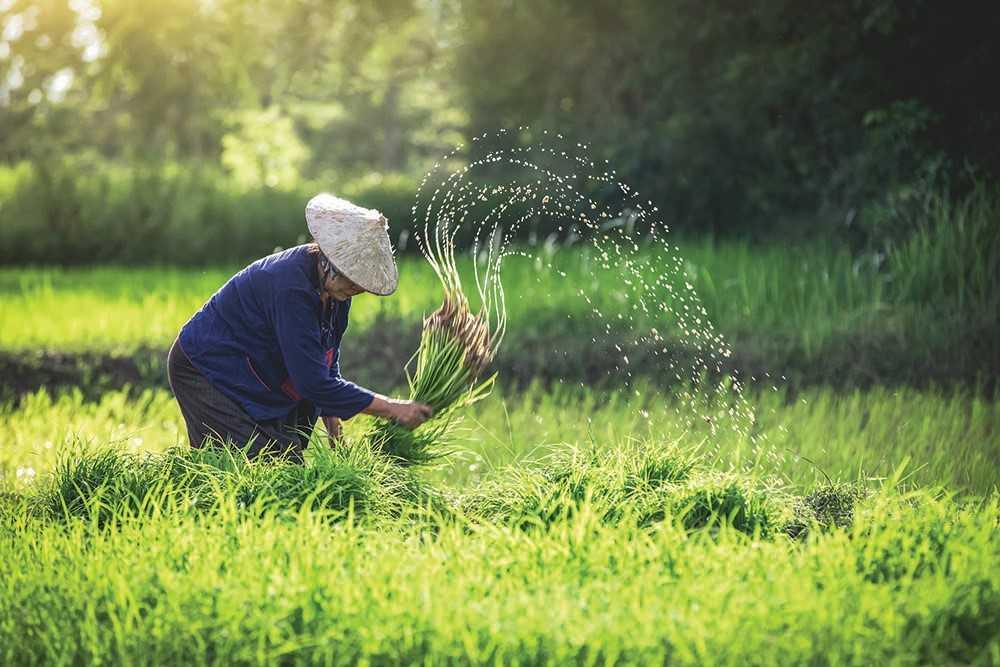How responsible are ASEAN business entrepreneurs?
By Grahame Dixie, Executive Director, Grow Asia & Carin Smaller, Senior Policy Advisor & Team Leader, International Institute for Sustainable Development
One of the world’s regions known for its significant agricultural and forest resources is a group of ten countries located in and around the Pacific and Indian Oceans, which together form the Association of Southeast Asian Nations (ASEAN). An economically diverse region with a growing population, many of these same countries also struggle with hunger and food insecurity, even as they attract the interest of foreign entrepreneurs and agribusinesses looking to invest in local projects.
ASEAN recognises that it is important that any new investments are adapted to local considerations and fulfil the “triple bottom line” of being socially, economically, and environmentally sustainable. Specifically, business entrepreneurs should acknowledge their responsibility and act on it, for instance by becoming more inclusive of the interests and needs of small-scale producers, especially women, young people, and indigenous peoples, enabling them to be active partners in the business relationship.
To help guide this approach, the Association’s agriculture and forestry ministers adopted a landmark document last year known as the ASEAN Guidelines for Responsible Investment in Food, Agriculture and Forestry, or ASEAN-RAI for short. This text sets out ten issue-specific principles that cover areas ranging from climate change to rule of law, designed to give inclusive business entrepreneurs and businesses a holistic framework to guide their work as they plan larger-scale agribusiness investments.

The ASEAN Guidelines are built around the Committee on World Food Security’s Principles for Responsible Investment in Agriculture and Food Systems (CFS-RAI), endorsed at the CFS meeting in Rome in 2014. These reflect a common global understanding of the guiding tenets that governments, investors, and other stakeholders should infuse into their decisions to ensure that agricultural investments improve food security and nutrition, while respecting and promoting human rights and other key considerations.
So, why do these guidelines matter for inclusive business entrepreneurs?
Many private sector actors are now taking the view that having business models recognised as “responsible” command a premium in valuation, and that designing them as such can also yield financial dividends by accounting for risks and externalities that have traditionally been ignored, such as climate-related risks. As banks and other financial institutions adopt these types of principles when deciding which projects to finance, entrepreneurs risk being left behind—both in securing the necessary funds and in reflecting social and business trends in their own work—if they fail to follow suit. For entrepreneurs engaged in the ASEAN region, mainstreaming these guidelines into their own frameworks and ensuring these principles are reflected in practice will be essential in supporting the achievement of SDGs, while also fulfilling their own business needs.
Simply put, adopting these guidelines can help inclusive business entrepreneurs access an ever-growing pot of responsible investment. With work being done to ensure investors are educated on how to use these guidelines, it is important that entrepreneurs pay attention, too.
The ASEAN Guidelines were developed using lessons from evidence-based best practice, so that they could effectively guide investors, governments and others in their deliberations, decisions, and operational level activities. For example, they set out the roles and responsibilities of agribusinesses and large-scale investors, such as ensuring that projects respect international labour standards and foster the engagement of women, young people, and local indigenous peoples. Each entrepreneur and firm is different, and so are the national contexts among the different ASEAN member states. Entrepreneurs can visit the recently launched ASEAN Guidelines website, which is in the process of unveiling a comprehensive suite of resources, tools, case studies, and related materials. While the primary audience for this site is investors, entrepreneurs, too, can utilise these materials as they take on the complex task of translating the principles into business practice.

In the meanwhile, there is a multi-component programme underway aimed at aligning ASEAN countries’ policies and regulations with the RAI guidelines. One component will work with country policymakers to review legal and policy frameworks for investment in agriculture, and to strengthen them in line with the ASEAN Guidelines and the CFS Principles for Responsible Investment in Agriculture and Food Systems (CFS-RAI). In-country workshops to inform and raise awareness on responsible investment in agriculture and food systems and strengthen capacities to support inclusive processes to enhance institutional, policy and regulatory frameworks, including through learning programmes, are also envisaged. A second component aims to create a cadre of accredited individuals and institutions in the region with detailed knowledge of the guidelines, who are able to apply them to the new, larger scale agribusiness investments in the region. Creating this cadre will involve a blended learning programme (i.e. a combination of e-learning coupled with in-person training, supported by on-going mentoring) overseen by a regional institution or network of institutions.
We are operating in a world where “responsible” investing is quickly becoming the norm: banks are divesting from fossil fuel projects, and environmental, social, and governance considerations are increasingly being integrated into investment decisions and measured according to that impact, a practice that has earned its own moniker of ESG investing. International organizations, global compacts, and informed buyers are among those stakeholders that are demanding to see sustainability considered by the private sector. The ultimate aim is that the ASEAN-RAI Guidelines become the de facto benchmark for all the stakeholders being affected by larger scale agribusiness investments; and thereby entrepreneurs, the surrounding rural communities and Government agencies are all working from the same basic set of good practices.
Additional Resources:
ASEAN Guidelines for Responsible Investment in Food, Agriculture and Forestry
Principles for Responsible Investment in Agriculture and Food Systems
